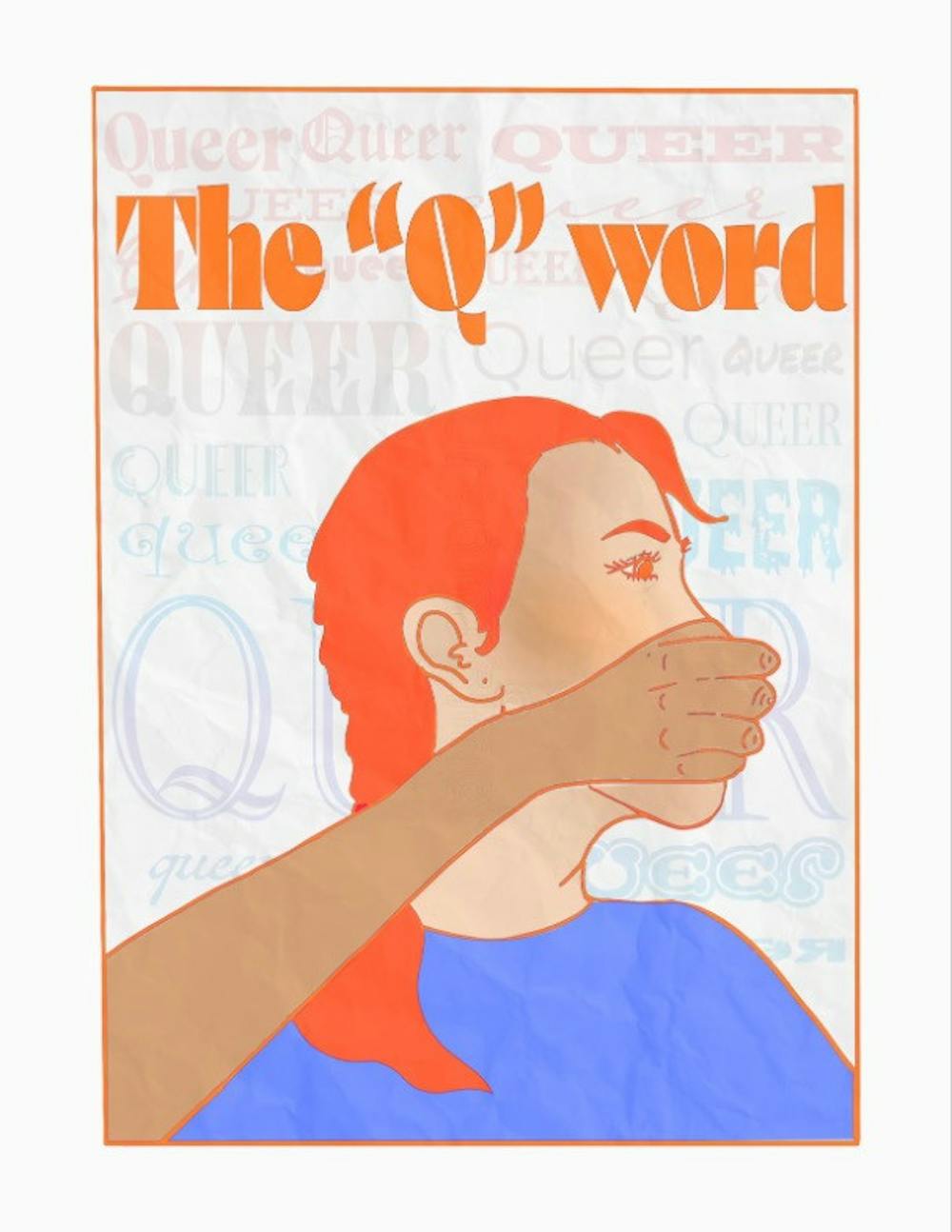By Isabel Smith
Correspondent
The word “Queer” was originally used to describe something strange or eclectic. According to Dictionary.com, it wasn’t until the 20th century that it began to take on a new, derogatory meaning to describe someone who is part of the LGBTQ+ community. Since then the word has been reclaimed by members of this community, but not everyone agrees with the usage of the term. Some students on campus have their own opinions to share.
Jess Fidel, Ren MacLean and Sayon Park, all recent graduates at The College, shared their thoughts on the term. The three of them all remember hearing the word around the same time.
Fidel, a spring 2022 graduate of marketing, said she remembered it being “the end of middle school, beginning of high school; that's when I started seeing [the term], mostly online.”
Around the same time MacLean, a fall 2022 graduate with a double major in fine arts and art history, experienced the same thing.
“I probably heard it [the word queer] before, but I was conscious about it when I was fourteen,” MacLean said.
Park, a current fifth-year student getting her Master's in Special Education, said she doesn’t recall hearing the word until she was almost sixteen.
Dictionary.com defines Queer as a “disparaging or offensive slang term used to describe someone whose sexuality or gender identity falls outside of the heterosexual mainstream or gender binary.”
Among the main letters used in LGBTQ+, the word’s history has been harmful and abusive. Even now, the term is used in a derogatory sense, however, the community has worked to reclaim this word.
“I think since then we have definitely reclaimed the word,” Fidel said, “and to me it just feels like an overarching term for anyone who defines as non-heterosexual.”
MacLean described Queer as a “descriptor, like how someone would identify themselves.”
“In the current scope it feels like the new buzzword in lew of LGBTQ+,” MacLean said. “There's a lot of overlapping and fluidity you don’t see a lot these days; it's become very rigid. I like how Queer has become an over-balance, but I don’t like how now the word Queer itself is becoming rigid.”
Park put it simply, calling the word “an umbrella term or a more general broad term for any person identifying under the LGBTQ+ community.”
The reclaiming of derogatory terms to groups of minorities is not in itself new; it’s a practice as old as the words themselves are. Reclamation is a form of taking back power from those who discriminate against them. Words themselves have the power to become good or bad in their connotations.
All three students agreed that “Queer” is a neutral term; it is not inherently good or bad.
“The offensiveness comes from saying something is odd or weird; those things are so subjective,” Fidel said. “What necessarily makes them bad? What makes that an insult?”
She added, “Weird can be good; weird can be super cool or different…call me Queer [because] I’m different — that's just how it is.”
MacLean brought up the usage of the word as a slur even to this day.
“I think the word is neutral — There's good and bad,” MacLean explained. “It's still a slur in many parts of the US. It’s normalizing something that for a lot of people still isn’t okay. I like it for its perks, but it's becoming more closed off with using it in everyday lexicon.”
Park appreciates the flexibility of the term.
“I feel like it's great for people who don’t want to identify with one specific label,” Park said.
MacLean shared their concerns on the current state of the word being used, saying, “It becomes normal people on one side and Queer people on another — or straight people and Queer people. It creates a monolith that Queer people are just one thing, and that's Queer, when there is so much variety.”
The usage of the word Queer in the LGBTQ+ community becomes a constant toggle within. Taking back the term that was once used to harm and instead is now used to inspire and understand an entire community of people as one can be both positive and negative. But it will always beg the question: Can the history of the term be completely erased?







